You can choose to enjoy the book from start to finish or to dip into your favourite story straight away. Each story is entirely independent.
After every story a short timeline brings together the most important events in each persons life into one short report. The timeline is a useful tool for revision purposes.
Words which are above the required reading level are underlined the first time they appear in each story. All underlined words are defined in the glossary at the back of the book. Levels 1 and 2 take their definitions from the Collins COBUILD Essential English Dictionary and levels 3 and 4 from the Collins COBUILD Advanced English Dictionary.
To support both teachers and learners, additional materials are available online at www.collinselt.com/readers.

16941778
the French writer who believed in social and religious freedom

All through my life, one thing was important to me and that was freedom. Freedom to belong to any religion, freedom to work and earn a living, and most importantly, freedom of speech. I always said and wrote exactly what I thought.

I was born in Paris, France on 21st November 1694 and I was the youngest of five children. My parents named me Franois-Marie and although my family name was Arouet, later as a writer, I chose the name Voltaire and that is how I am still known. My father, Franois Arouet was a public official , a lawyer, and my mother, Marie Marguerite dAumart, who died when I was 7 years old, came from an aristocratic family. Even though my father was considered to be upper-middle class and not part of the aristocracy , we lived well and did not have any financial problems. When I was 10 years old, in 1704, I started going to school at the Collge Louis-le-Grand. Here I was educated by Catholic priests and I discovered that I loved literature, theatre and writing, especially writing poetry and plays. From an early age I knew I wanted to become a professional writer. My father had other ideas for some reason he did not want his son to follow a literary career and so I was not allowed to continue studying what I loved. Instead, my father wanted me to become a lawyer and in 1711, when I left school, he found me a job in Paris as an assistant to a notary a type of lawyer.
However, instead of learning about the law, I spent my time secretly studying and writing poetry. When I wasnt writing, I spent my time with friends. I soon found out that I was able to write in a way that amused people and I wrote funny poems about well-known people poems that often lacked respect and were sometimes even rude. When my father discovered what I was really doing, he was furious. He was angry, not only because I had lied to him but also because he did not approve of my friends. In 1713, he sent me away to Caen in Normandy to study law.
While I was in Normandy, my father arranged for me to move to the Netherlands to work as a secretary for the French Ambassador. In the Netherlands, I met a young French woman called Catherine Olympe Dunoyer who was a Protestant refugee. In France, the only religion that was allowed was Catholicism . If you were not Catholic, you could be punished. Catherine and her family had gone to live in the Netherlands, which was mainly Protestant, where they were safe. We loved each other and wanted to run away and get married. My father discovered our plans and stopped us. Once again he was angry with me. At the age of 19, in disgrace, I was sent back to France, where my father thought he could control me.

My relationship with my father had never been very good and I felt increasingly bitter and angry with the way he kept interfering in my life. I could not support myself because I had no money of my own and so I was forced to do what he wanted. I was also unhappy with the way French society was organized. For the past 50 years, France had been ruled by King Louis XIV. He believed that his right to be king had come from God. He also believed that God only supported Catholics and that every other religion should be forbidden. This made me furious because I completely refused to accept that God was only in favour of one religion. To me, it was impossible. I believed in a different kind of society one where everybody had the same rights, no matter what their religion, gender or social class was. Only the aristocracy and the Church had rights in France and, thinking it was most unfair, I expressed my feelings in the things I wrote. In a country where there was no social freedom, this was dangerous and probably not very wise.

King Louis XIV of France
My writing became more satirical as I criticized the church, and the king and his advisors , and I started to make enemies. My father decided to send me away again and I went to stay with the Marquis de Saint-Ange, a friend who lived in the country. I stayed there for some months and when I came back in 1715, my father tried to introduce me to a new circle of friends that he thought would have a better influence on me. I joined the elite social circle the Court Sceaux of a woman called the Duchesse du Maine. Here I found that many people admired my satirical humour, which naturally encouraged me to write more, and I started to become famous. The following year, in 1716, I made fun of the Duc dOrlans, who was ruling the country until the king was old enough to do it himself. Louis XIV had died and King Louis XV was only five years old. The Duke was so annoyed by what I had written that he exiled me to a place called Tulle, which was about 480 kilometres from Paris. After a short while, he let me come back home.
Then, in 1717, I was arrested for having written an offensive poem about members of the ruling aristocracy. I was sent to the Bastille, which was a prison in the middle of Paris, for 11 months. Conditions there were terrible. It was full of mad people and rats carrying all kinds of disease. Being locked up didnt stop me from wanting to write about everything that I thought was wrong with French life. While I was in prison, I wrote my first play, called


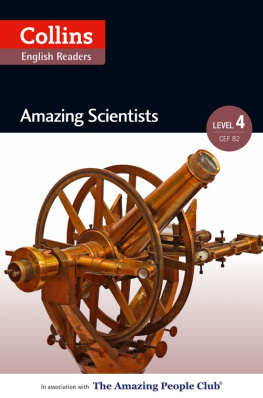
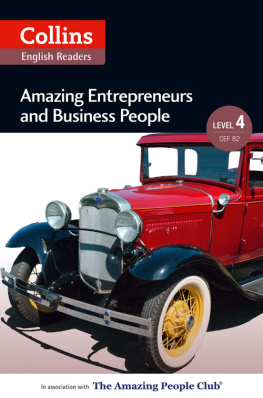
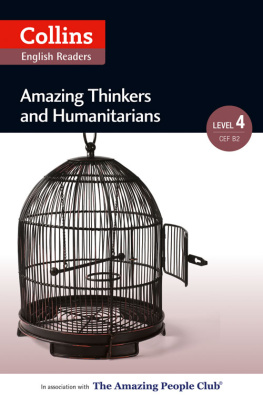
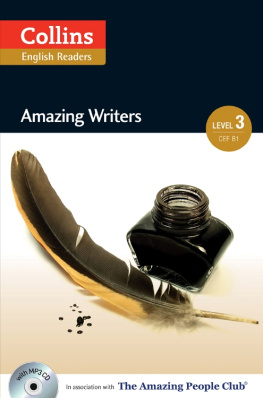
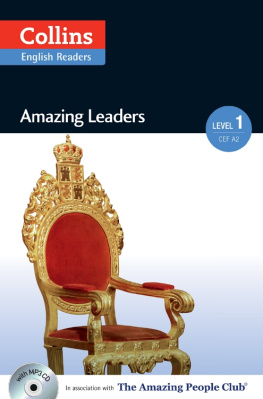

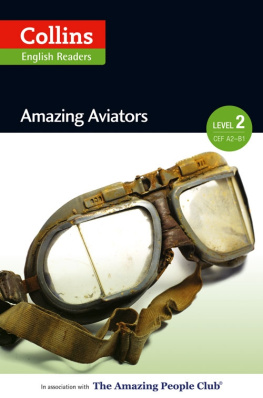



 C ONTENTS
C ONTENTS 


